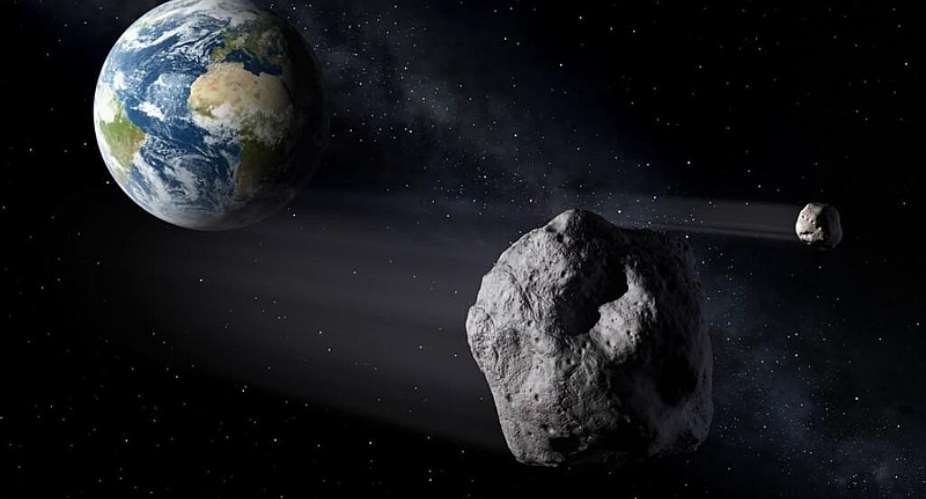The US space agency Nasa says we have nothing to worry about. The cosmic rock is nine metres wide and weighs as much as a shipping container – and it's going to miss the southern tip of South America by at least 3,600 kilometres.
This particular asteroid will pass so close to Earth that it will be inside the vast majority of manmade geostationary satellites as it sizzles through the upper atmosphere.
It is unromantically named 2023 BU.
The separation gap of just 3,600 kilometres is the closest approach ever recorded. That's less than the distance separating Dublin from Moscow, or the distance the Tesla electric car can travel on six full recharges.
There is no risk that the asteroid will hit Earth, Nasa said in a statement.
- Move over Hale-Bopp: Once in 50,000-year comet may be visible to naked eye
- Setback for Europe as Vega-C rocket is lost after take-off in French Guiana
Even if it did, the statement worryingly continued, the asteroid measuring 3.5 by 8.5 metres would disintegrate in the Earth's atmosphere, resulting in a harmless but spectaculare meteorite shower.
The flying visitor was discovered last Saturday from an observatory in the Crimea by amateur astronomer Gennadiy Borisov, who previously spotted an interstellar comet in 2019.
Dozens of observations have since been carried out by observatories across the world.
Nasa says there's nothing to worry about
Nasa's Scout impact hazard assessment system quickly determined that the asteroid would miss Earth, the US space agency said.
"Despite the very few observations, it was nonetheless possible to predict that the asteroid would make an extraordinarily close approach with Earth," said Nasa's Davide Farnocchia who helped develop Scout.
"In fact, this is one of the closest approaches by a known near-Earth object ever recorded."
The asteroid will come so close that its trajectory around the Sun will be significantly altered by the Earth's gravitational field.
The asteroid has been taking 359 days to complete its orbit around the Sun; after this close call with Earth, it will now take 425 days, Nasa said.





 We’ll no longer tolerate your empty, unwarranted attacks – TUC blasts Prof Adei
We’ll no longer tolerate your empty, unwarranted attacks – TUC blasts Prof Adei
 Bawumia donates GHc200,000 to support Madina fire victims
Bawumia donates GHc200,000 to support Madina fire victims
 IMF to disburse US$360million third tranche to Ghana without creditors MoU
IMF to disburse US$360million third tranche to Ghana without creditors MoU
 Truck owner share insights into train collision incident
Truck owner share insights into train collision incident
 Paramount chief of Bassare Traditional Area passes on
Paramount chief of Bassare Traditional Area passes on
 Two teachers in court over alleged illegal possession of BECE papers
Two teachers in court over alleged illegal possession of BECE papers
 Sunyani: Victim allegedly shot by traditional warriors appeals for justice
Sunyani: Victim allegedly shot by traditional warriors appeals for justice
 Mahama vows to scrap teacher licensure exams, review Free SHS policy
Mahama vows to scrap teacher licensure exams, review Free SHS policy
 Government will replace burnt Madina shops with a new three-story, 120-store fac...
Government will replace burnt Madina shops with a new three-story, 120-store fac...
